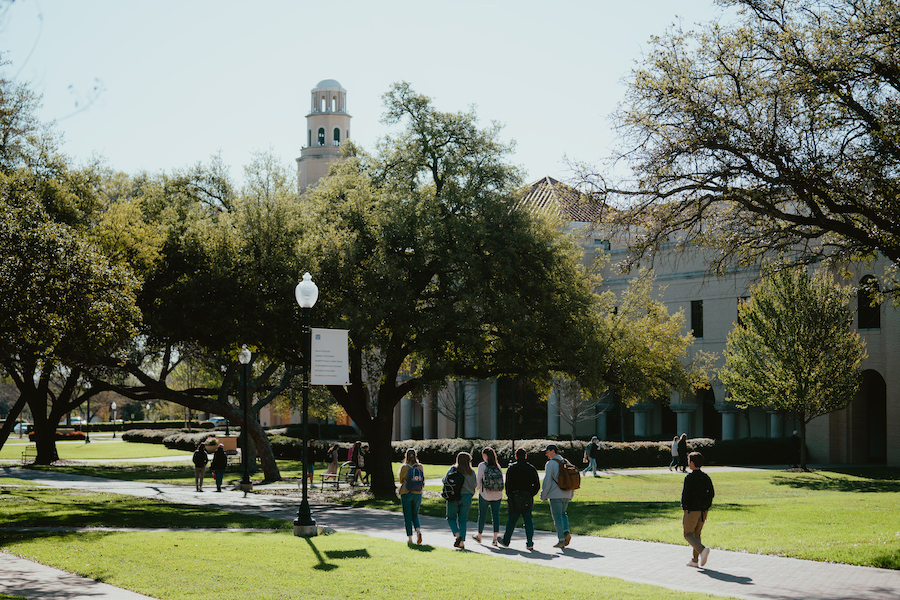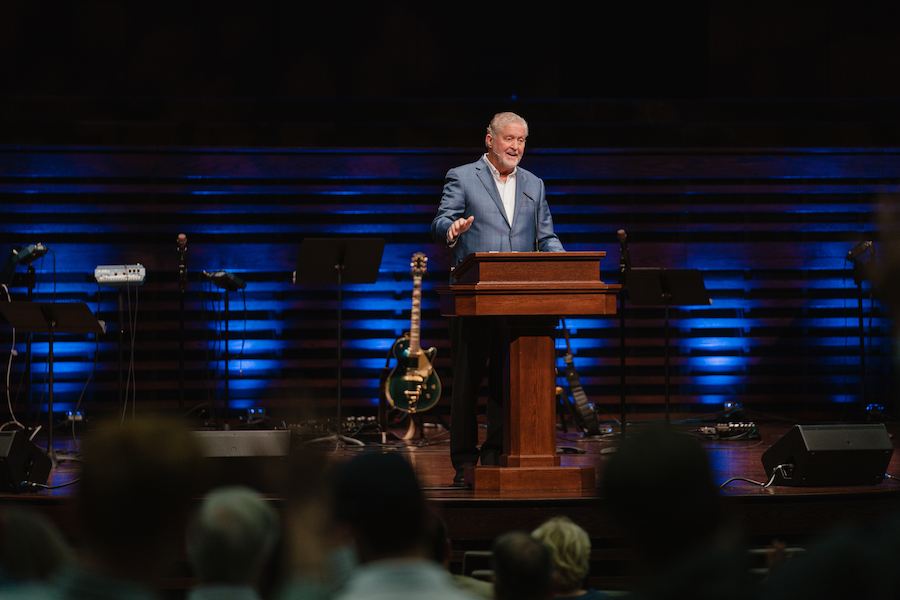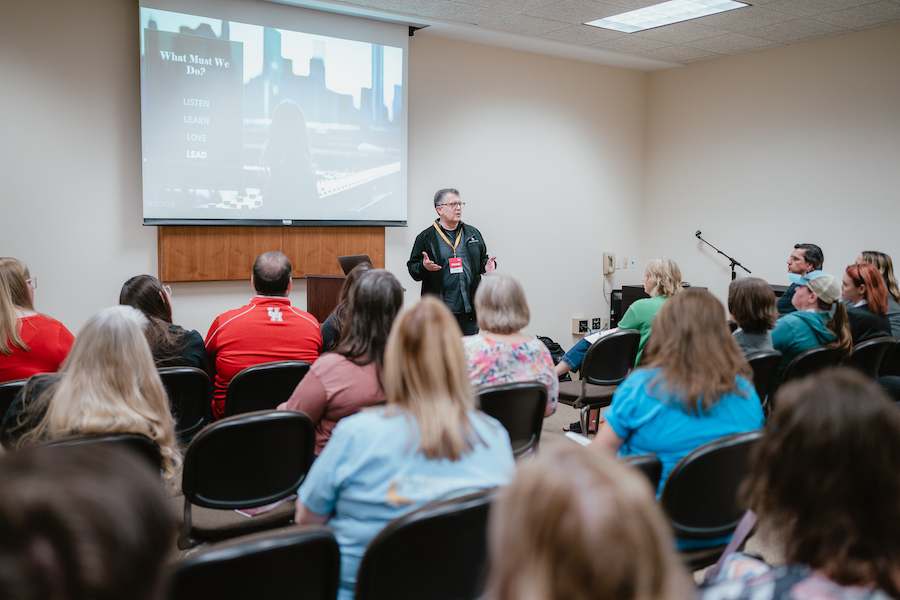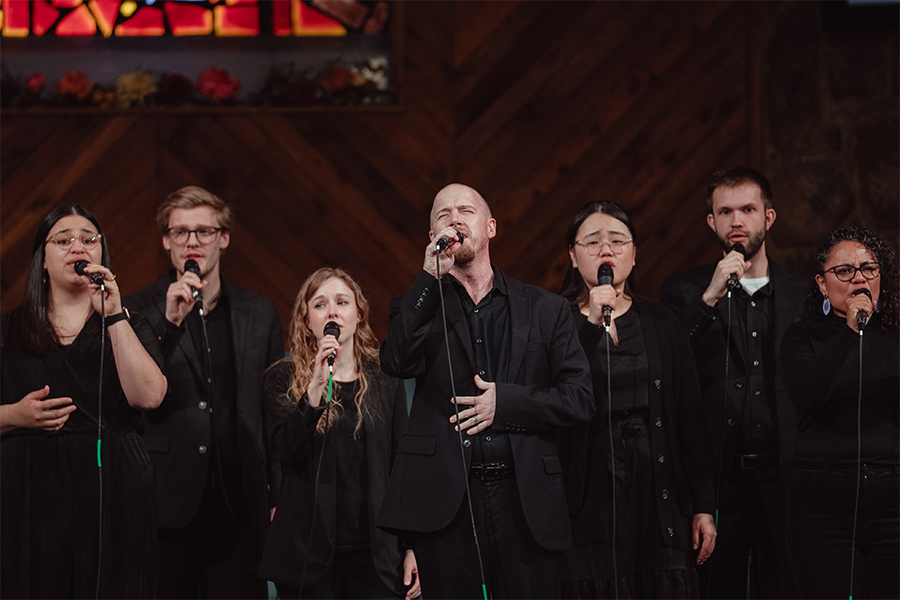‘Dream come true’: First graduates of MTS in Mandarin at Southwestern Seminary celebrated

Calling it a “dream come true,” administrators, faculty, staff, students, and donors of the Mandarin Translation Project for the Master of Theological Studies program at Southwestern Baptist Theological Seminary celebrated the 38 students who will be the first to graduate from the program during an evening of testimony and thanksgiving held Nov. 30 on the Fort Worth campus.
“This program has made a difference in the life of Southwestern Baptist Theological Seminary,” said Interim President David S. Dockery in his greeting to the gathered guests. “We are genuinely committed to global theological education, to taking the Gospel to the nations, to living out the realities of our Lord’s Great Commission. This is a small testament to that of our way of taking the Gospel to the nations and we become equippers of the next generation to take that Gospel and strengthen the church to extend God’s kingdom.”
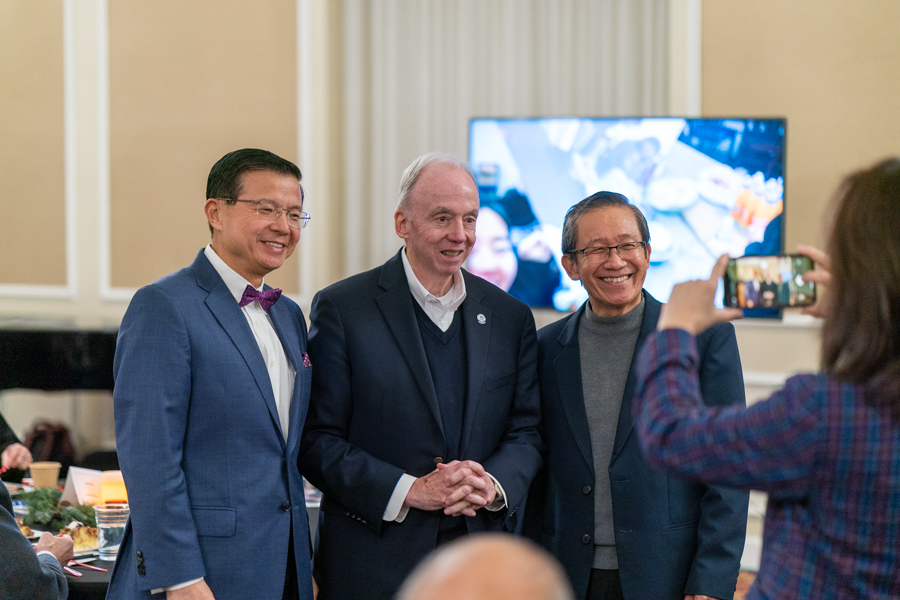
Southwestern Baptist Theological Seminary celebrated the 38 students who will be the first to graduate from the Mandarin Translation Project for the Master of Theological Studies.
The program allows students whose native language is Mandarin Chinese to take online classes from Southwestern Seminary faculty that have been recorded and translated into their language and count toward a Master of Theological Studies degree. The classes include systematic theology, church history, Old and New Testament, and biblical hermeneutics, among others. The first group of graduates also includes five students who are legally blind.
The evening included Chinese language video testimony of donors explaining why they have given to the program and students who have completed the program. The faces of the students were obscured in the videos for security reasons.
“This is my dream come true,” Louie Lu, project originator, donor, and Southwestern Seminary trustee, told the crowd, which included almost a dozen students who will receive their diplomas from the program during the institution’s Dec. 2 commencement ceremony. Lu recounted the genesis of the project, which began when he attended a Chinese missions conference in Houston in 2014. He said as he and a friend walked around the exhibit hall, they saw a different seminary offering courses that were translated into Chinese.
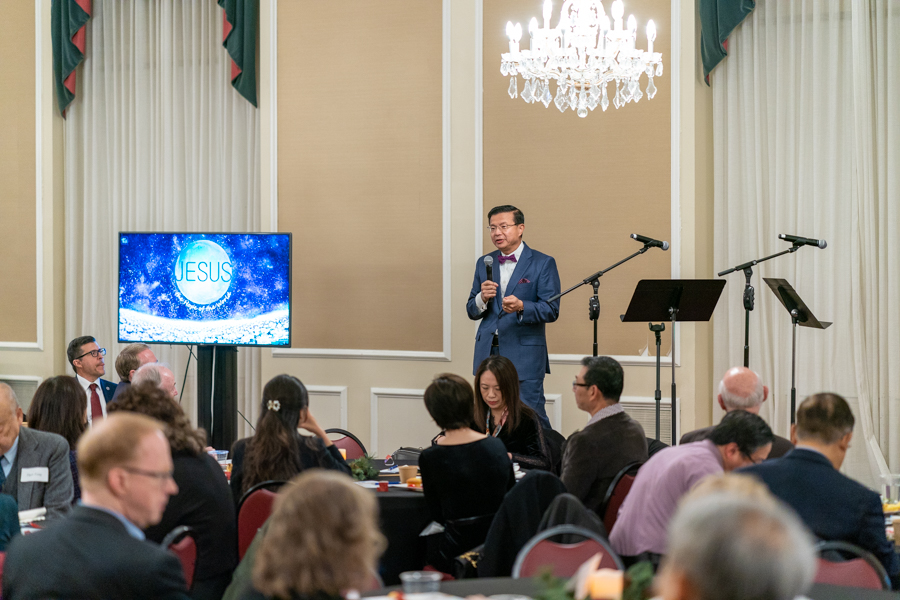
Hongyi Yang, director of Chinese language programs and assistant professor of world Christianity has spearheaded the program.
Lu explained the friend and another colleague told him, “Southwestern has the best professors and the best program, probably in the entire world. Can you dream about [having] a Chinese program at Southwestern?” Lu said he told the friends he would “pray about it.” He spoke with seminary administrators and told them, “We have a couple of brothers and we have a dream to start a Chinese translation program here at Southwestern and translate your best professors … into Chinese.” He explained seminary officials were open to the program but said he would have to find the money to fund the program.
Lu said two years later, in 2016, he received a phone call from Southwestern Seminary with the news a person had been found to lead the program.
“The Lord has gathered a wonderful group of donors,” Lu added, noting that since “day one” the program has been largely funded by donors, many of whom were in attendance.
Hongyi Yang, director of Chinese language programs and assistant professor of world Christianity in the Roy J. Fish School of Evangelism and Missions, has spearheaded the program since it was launched in 2016. Yang, who earned her Doctor of Philosophy from Southwestern in 2016, provided oversight of the team who worked on the project, which included filming, editing, and translating the lectures of the classes of the 36-hour degree program into closed caption in Mandarin.
Yang said the project was initially called an “experiment” because leaders did not “know where it will land.”
“The major problem that I faced, from the very beginning, was how to translate classes,” Yang recalled, noting that translating the audio from the classes was “different from translating books.” She recounted that the lectures not only had to be recorded, the quality of the lectures, including the quality of the camera and the aesthetics of the video, were important. She explained she began implementing “professional shooting plans, including two cameras” and “hiring professional videographers to record and edit lecture videos” in addition to “providing shooting guidelines for the professors.”
Yang, who earned a bachelor’s degree and two master’s degrees in mass media and worked as a documentary filmmaker before pursuing her theological education, said she “never expected” that she would use “this education and experience again.” However, she explained, her background led her to decide “to translate these classes like translating movies,” which is “a lot of steps.” Additionally, Yang said, prior to leading the project she “learned the skill of translation and interpretation from outstanding English professors” and “had the opportunities to study under some of the most prominent professors of Chinese language and literature.”
In May 2017, Yang said she was contacted about Chinese language students who were blind but desired theological education. She recalled that she was told they “were so eager to be equipped to learn God’s Word but were rejected by some seminaries” because the institutions thought the students were “troublesome.” Yang said the need and response of other schools made her “quite upset” because she believed “that they also deserve the best.” She said the response was that “we added another function to the team” which was to create audio files for the blind students. She explained the team “would pay special attention” to the needs of the blind students as they translated and used “words that could be heard clearly and understood easily.”
Yang said the five blind students who are a part of the 38 who will graduate first from the program are “some of our best students” who have “good grades.”
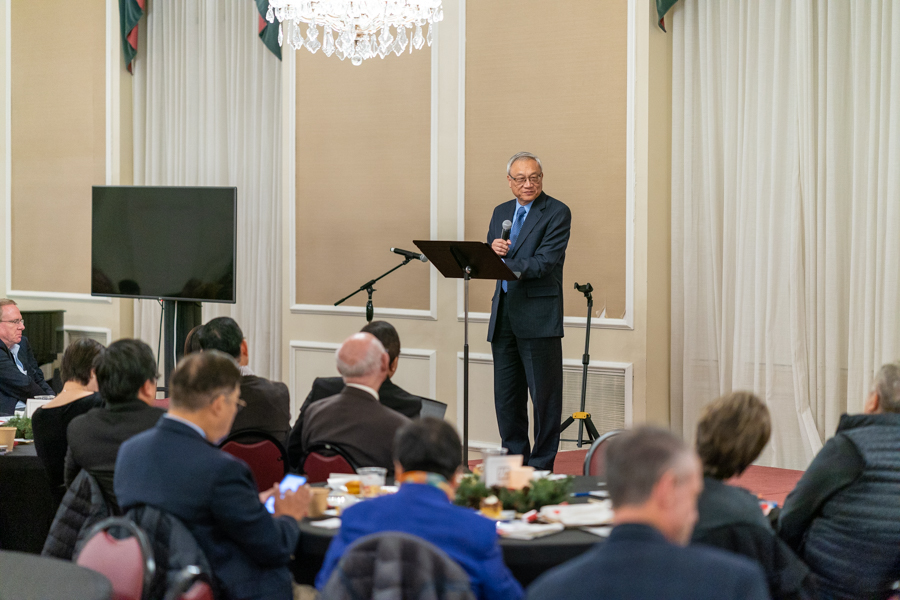
Hongyi Yang, director of Chinese language programs and assistant professor of world Christianity has spearheaded the program.
Jeremy Sin, national missionary of the North American Mission Board and executive director of the Chinese Baptist Fellowship, said “in the last few decades” the Chinese population growth in the United States “has more than doubled” as it has increased from “approximately 2.5 million to over 5 million” people.
Sin explained he is often contacted asking if he can “find” church planters and pastors.
“Many people pray for workers for [the] harvest,” Sin said. “Well, I believe the … Chinese language program is one of the answers to these prayers. We are praying that many pastors, planters, and missionaries are coming out from this program, not only for North America but for the whole world.”
He said he understood “how hard it can be to function and operate in a second language” noting the difficulties missionaries often have learning a second language despite studying for years.
“The Mandarin program will allow someone who [receives] the call to begin to study right away and learn from the best [scholars] of Southwestern,” Sin explained. “Nevertheless, Chinese theological education does not only break down the barrier of language, it allows the students [to] practice in their own language and context, which is different from an English speaking” setting and mindset.
Sin said he advocates for “theological training for Chinese Baptists.”
“We are Chinese, and we are Baptists,” Sin concluded. “We need Chinese preaching [and] theological education, but we need Chinese Baptist theological education.”
More information about the Master of Theological Studies in Mandarin degree program can be found here.
